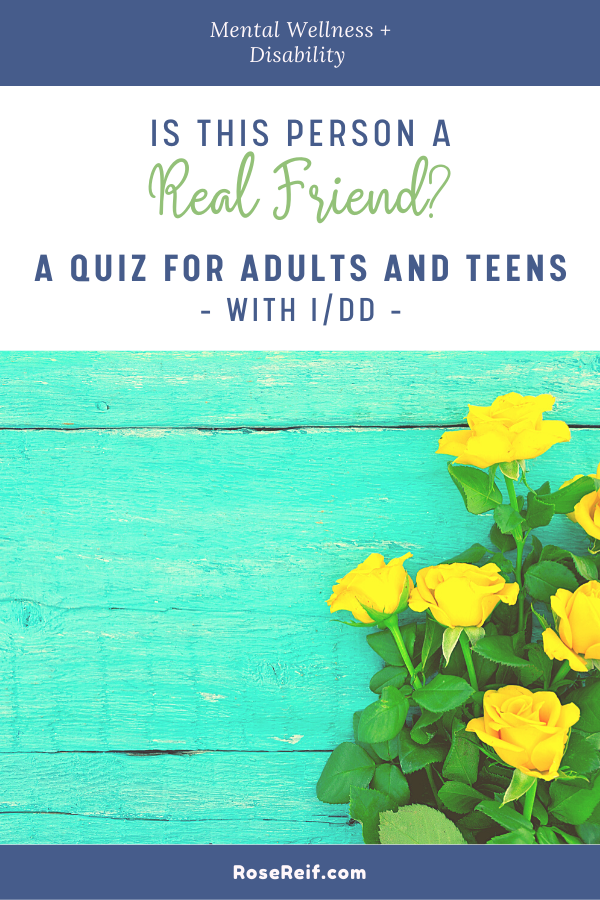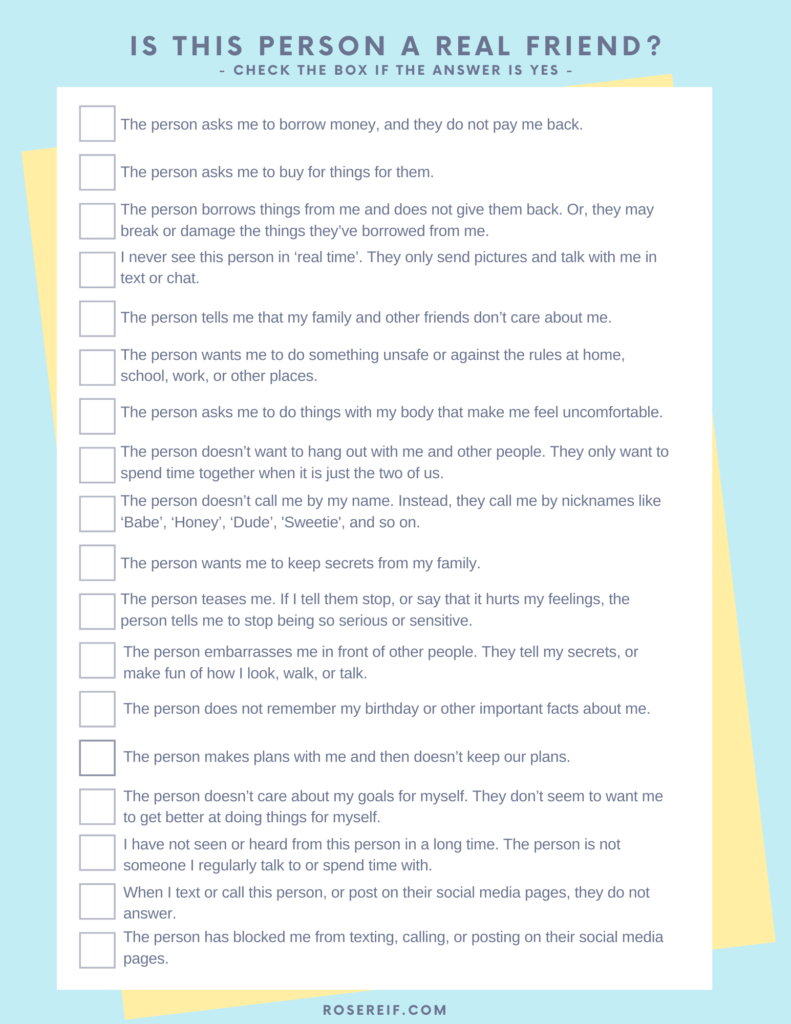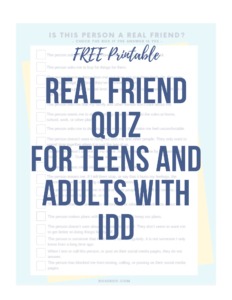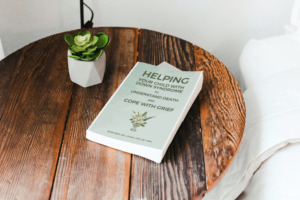In my counseling practice, I offer mental health counseling for teens and adults with IDD. Many of my clients who have Down syndrome, Cerebral palsy, and other disabilities have lots of meaningful friendships in their lives. But sometimes, they ask “how can I know if someone is a real friend?”
Maybe you have a friend that seems like they might NOT be a real friend, too.

People who are real friends:
- Care about who you are as a person. They want to get to know you.
- Don’t ask you to do things that make you feel uncomfortable. This includes spending money on them and doing things with your body that you don’t want to do.
- Enjoy spending time with you, and don’t embarrass or tease you on purpose.
But, sometimes people who are not real friends can be nice and fun to spend time with. It can be hard to know if a person is a real friend.
That’s why I’ve made this free, printable quiz “How to know if someone is a real friend. A quiz for teens and adults with IDD.” Read each of the items on the quiz, and check the box next to the item for each thing that the person does.

You can read along on your computer screen. Or, you can click the image below to print the quiz at home.
If you answered “YES” and checked the box about any of these statements, the person you’re talking about may not actually be a real friend.
What can you do if you think the person may not actually be a real friend?
- Talk with people you trust. Ask them if they think the person is a real friend. You could ask your parents, siblings, counselor, sports coach, faith leader, or other trusted ally.
- Keep this quiz handy. The next time the person contacts you, re-read the quiz. Are they contacting you because they want to spend time with you? Or do they want something from you (like money). Do they seem interested in how you’re doing? Or do they only want to talk about themselves. If you can answer yes to any of the quiz questions each time the person contacts you, the person is probably not a real friend.
It can be hard to accept that a person isn’t a real friend.
It is OK to feel sad and angry when you realize that someone you thought was a real friend is actually not a real friend.
But it is important that you protect yourself. Someone who is not a real friend is usually pretending to be friends so that they can use your money or your belongings. Or, they may be spending time with you so that they feel better about themselves. This is not OK. This is not real friendship.
You have to say “NO” to their friendship, even if they tell you that they will change and be kinder.
You can do these things to keep yourself safe from someone who is not a real friend:
- Tell the person that you are not going to be friends anymore. You don’t have to explain the reason to them.
- Get help from a trusted ally to block the person from contacting you on social media and on your phone and email.
- Make up a script of what you’ll say or do if the person tries to talk to you again. Practice using your script with people you trust, so that you are comfortable knowing just what you’ll say and do if the person tries to contact you.
Summary
It can be hard to recognize if someone is a real friend. Sometimes, people can act nice and be fun to spend time with, but this alone does not make them a real friend.
To be a real friend, a person must show that they care about you in lots of ways.
You can use the quiz in this article to help you decide if someone is a real friend.




